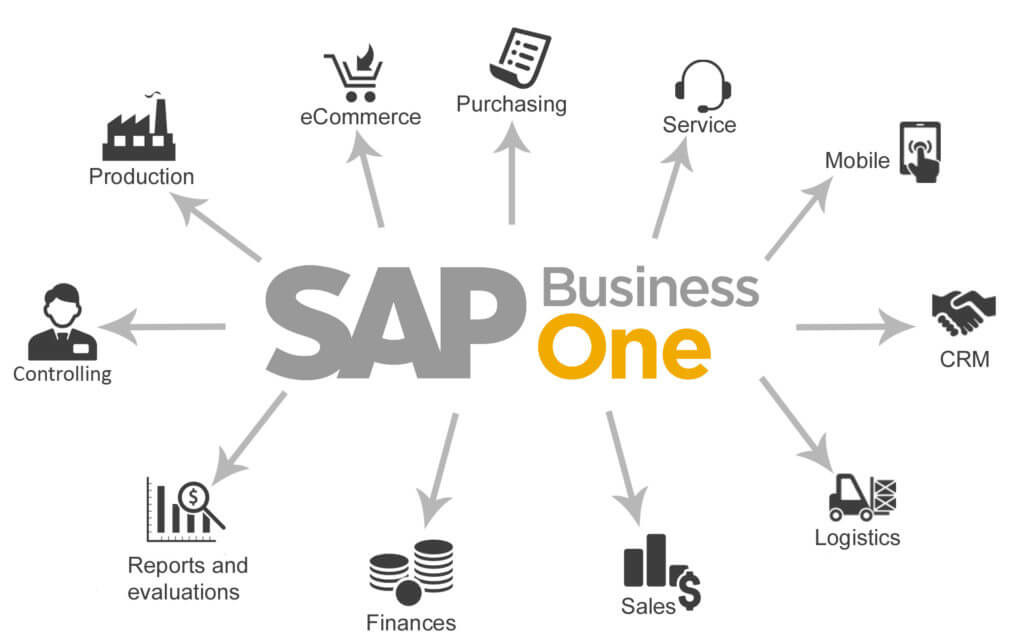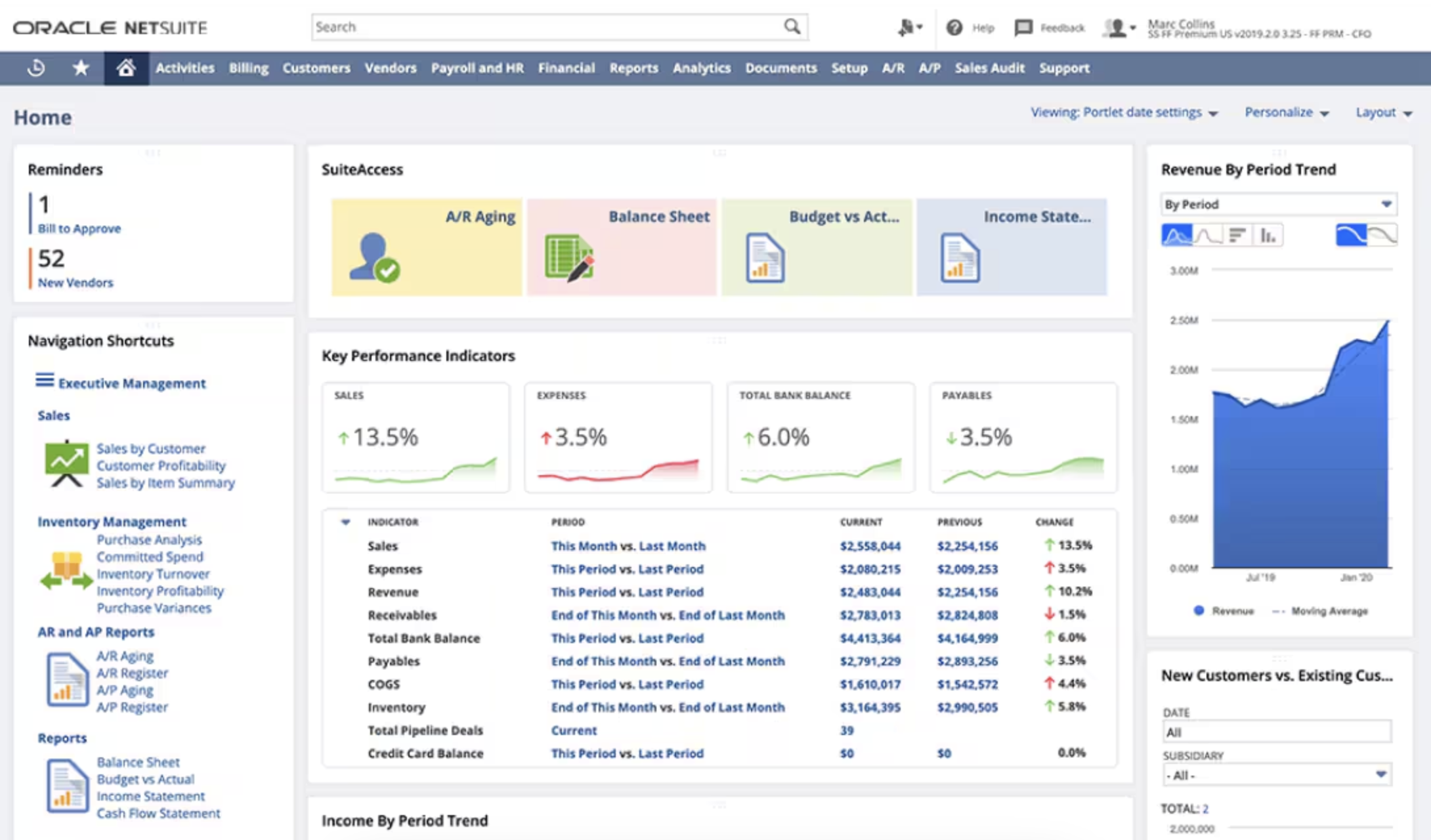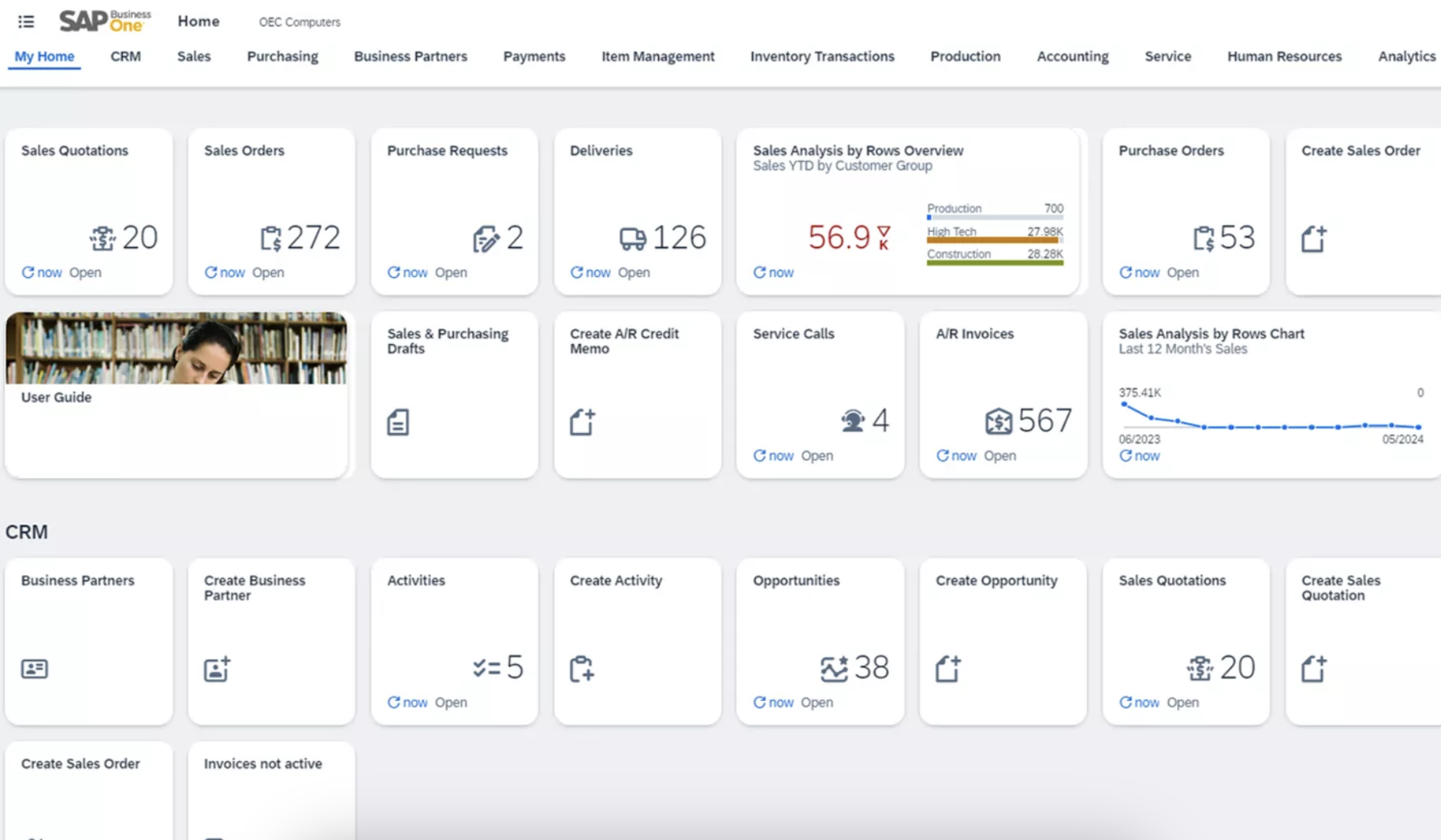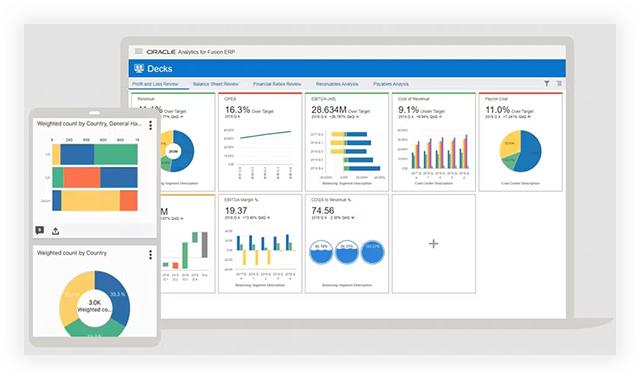
Choosing an appropriate ERP (Enterprise Resource Planning) system is crucial for companies looking to optimize their operations and improve efficiency. SAP Business One and Oracle ERP are two popular options on the market, each with their own strengths. We will compare both solutions to help managers and business leaders make the best decision for their companies.

SAP Business One Features
SAP Business One is designed specifically for small and medium-sized businesses (SMEs). It offers a comprehensive solution that covers key areas such as finance, sales, inventory and purchasing, all on a single platform. Its features include:
- Complete integration: allows you to manage all areas of the business in a single database.
- Real-time analytics: provides detailed reporting and data visualization for more informed decision making.
- Scalability: ideal for growing companies, as it allows modules to be added as the company expands.

Oracle ERP Features
Oracle ERP, on the other hand, is designed for larger, more complex companies, although it also offers solutions for medium-sized businesses. Its key features include:
- Advanced financial management: with robust capabilities for accounting, compliance and financial planning.
- Process Automation: from supply chain to project management, Oracle ERP optimizes a wide range of business processes.
- Cloud architecture: designed for mobility and scalability, with a secure and flexible cloud infrastructure.

SAP Business One Features
SAP Business One offers features that are designed for the specific needs of SMEs:
Customer Relationship Management (CRM)
It allows you to manage interactions with clients and leads from a single place.
Inventory management
It allows precise control of stock, ensuring that there are always products available for sale.
Financial reports
Simple tools to generate cash flow reports, balance sheets and other financial reports.
Oracle ERP Features
Oracle ERP is best suited for large companies that need more advanced and customizable functionalities:
Supply Chain Management (SCM)
It integrates all aspects of the supply chain, from sourcing to delivery.
Enterprise Resource Planning (EPM)
Advanced planning and analysis tools to optimize business resources.
Financial automation
It allows you to automate repetitive tasks such as accounting and invoice tracking, reducing errors and increasing efficiency.
Pros of SAP Business One
- Easy to implement
SAP Business One is known for its faster and easier implementation compared to more complex ERP systems.
- Affordable cost
It offers an ERP solution at an affordable price for SMEs.
- Friendly interface
Designed with ease of use in mind for small businesses without extensive IT departments.

Pros of Oracle ERP
- Advanced features
Ideal for companies with complex needs that require customization and scalability.
- Robust security
Oracle is known for its focus on data security, especially with its cloud architecture.
- Advanced automation
provides tools to automate complex business processes, reducing operational time and costs.

Cons of SAP Business One
- Limitations for large companies
While it's great for SMEs, it may not be enough for larger businesses with more complex needs.
- Less customizable
Compared to more robust solutions like Oracle ERP, SAP Business One has fewer customization options.
Cons of Oracle ERP
- High costs
Oracle ERP can be significantly more expensive, both to implement and maintain.
- Learning curve
Its vast amount of functionality may require a skilled IT team and adaptation time.
Choosing between SAP Business One and Oracle ERP depends largely on the size and specific needs of your company. SAP Business One is ideal for SMEs looking for an accessible and easy-to-use ERP solution, while Oracle ERP is more suitable for large, complex companies that need a highly customizable and secure system.


